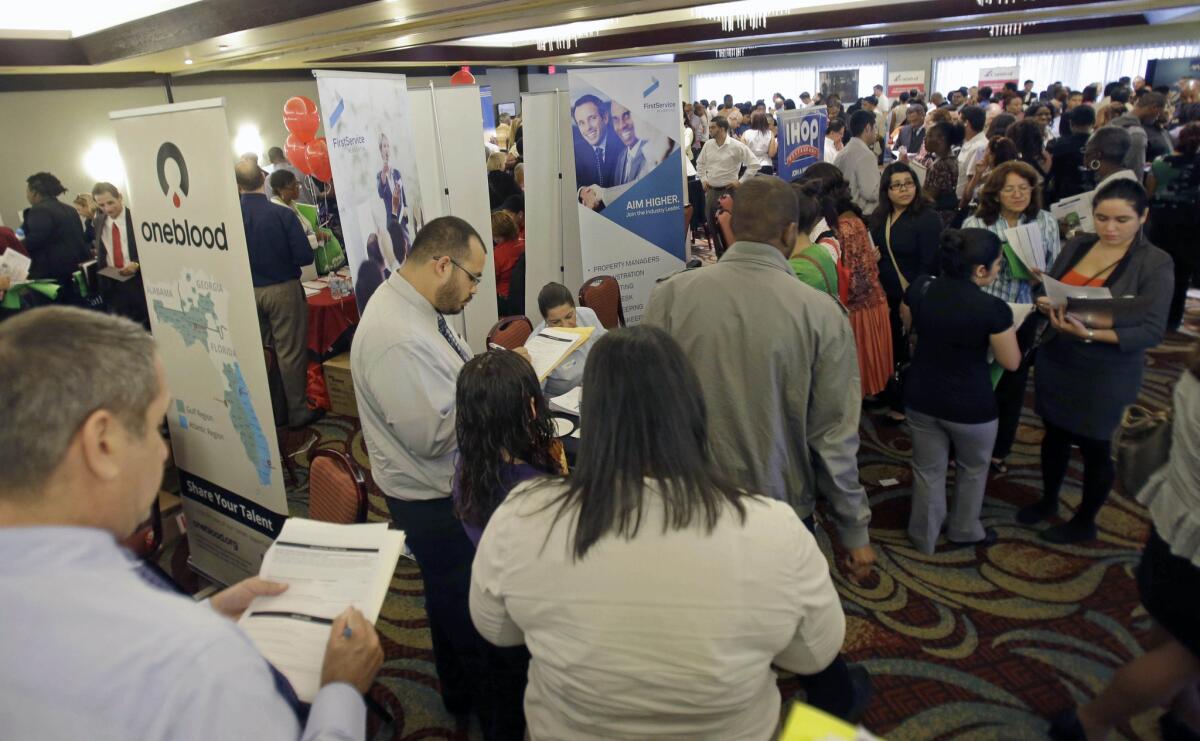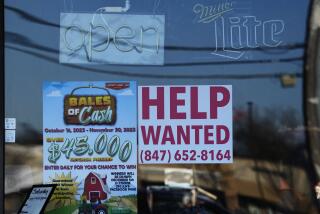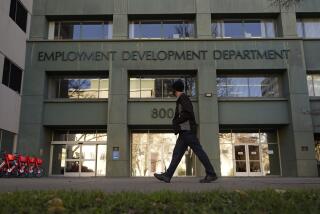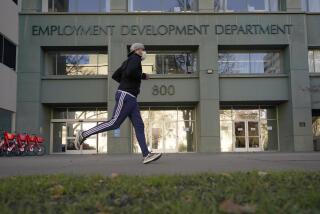Q&A: Why unemployment benefits expire for 1.3 million

Some 1.3 million Americans will lose unemployment benefits on Saturday as the federal program to assist the long-term unemployed expires. Here are six things to know about who is affected and why the benefits are going away.
Q: Who will lose benefits?
Anyone who has been collecting unemployment for more than 26 weeks will lose benefits. Roughly 1.3 million people will be affected immediately. Over the course of 2014, several million more people will hit the 26-week limit and will also lose benefits. The Obama administration estimates that by the end of 2014, a total of 4.9 million people will have been affected.
Q: Why the change?
In good times, the federal government and the states jointly provide 26 weeks of unemployment benefits to people who lose their jobs. The idea, which dates to the 1930s, is to provide enough money to help laid-off workers until they can find new jobs. Well over half of Americans either collect unemployment insurance during some part of their working lives or are married to someone who does.
TIMELINE: The year in politics
During periods of high unemployment, the federal government has expanded the unemployment insurance program. In June 2008, when the recession was still young and the unemployment rate was 5.6%, Congress approved a 13-week extension. As the recession deepened, Congress passed additional expansions. At its peak, the program offered up to 99 weeks coverage. It’s been scaling down gradually ever since.
Two states with high unemployment, Illinois and Nevada, currently offer 73 weeks of benefits. Most others offer between 43 and 63 weeks, as shown on this map. Virginia, Vermont, New Hampshire and a group of Great Plains and Mountain states, several of which have relatively low unemployment because of the boom in oil and natural gas production, offer 40-42 weeks.
But the current extension expires on Dec. 28. As of that date, all states will drop to 26 weeks or fewer.
Q: What states will be hit hardest?
California, Nevada, Illinois, Pennsylvania, Connecticut, New York, New Jersey and Massachusetts are among the states with significantly higher-than-average percentages of long-term unemployed people.
Q: Why hasn’t Congress extended unemployment insurance again?
Democrats have pushed for another extension but most Republicans have opposed the idea, and so far, the two have stalemated. The Senate’s Democratic leadership has promised to try to push legislation in January that would extend unemployment benefits, but the prospects for passage appear very dim.
PHOTOS: 2013’s political moments
Q: What are the arguments for allowing benefits to expire?
Republicans have advanced three arguments. First, they say that the extension was always supposed to be temporary and now that unemployment has dropped to 7% nationwide, it’s time to go back to the basic 26 weeks of coverage.
Extending benefits for another year would cost roughly $25 billion, they note, which would add to the federal deficit.
Some Republicans also argue that extended unemployment benefits provide a crutch that discourages people from looking for work.
Q: What are the arguments for extending the program again?
Democrats and a few Republicans who support extending the program note that even though the overall unemployment rate has dropped, the problems faced by the long-term unemployed remain grim. The share of the nation’s workforce that has been unemployed for 27 weeks or longer has dropped, but at 2.6%, it remains as bad as the peak of long-term unemployment in any recession since the end of World War II.
Backers of extended unemployment insurance scoff at the idea that the benefits deter people from looking for work. The problem, they say, is jobs remain hard to find. Some evidence suggests that companies discriminate against people who have been out of work for a long time.
As for the cost of benefits, supporters argue that by injecting money into the economy, unemployment benefits spur growth as recipients buy goods and services. The economy remains weak, they argue, and if anything, the federal deficit for the next couple of years should be larger, not smaller. Federal Reserve Board Chairman Ben Bernanke made that point in a recent news conference, saying that fiscal policy was too tight and that the economy would produce more jobs if Congress eased up in the short term.
Follow Politics Now on Twitter and Facebook
Twitter: @davidlauter
More to Read
Start your day right
Sign up for Essential California for news, features and recommendations from the L.A. Times and beyond in your inbox six days a week.
You may occasionally receive promotional content from the Los Angeles Times.







